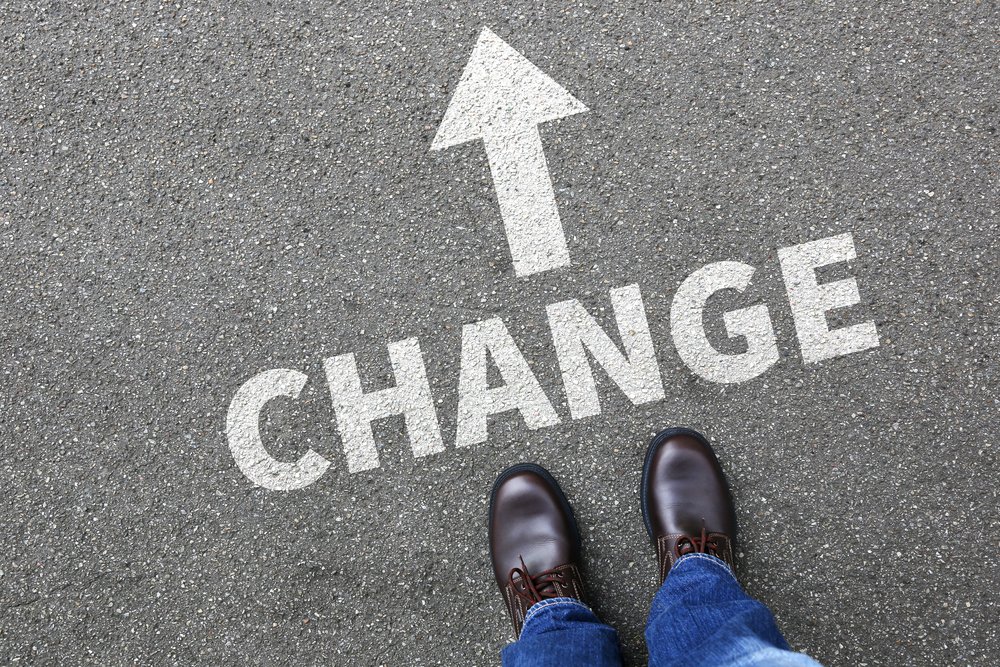The Art of ALS Adaptability

Life with ALS often feels like a crash course in adaptability but being adaptable doesn’t come naturally for many of us. However, whether you’re the patient, caregiver, or a family member, I believe you can learn how. Read on and let’s get started.
In my pre-ALS life as a dancer and fitness enthusiast, I thought I was good at adapting to change, but boy, did ALS teach me a few more lessons! By the end of my first year with ALS, I went from walking with the help of a cane to chugging through the drugstore leaning on a rollator while wearing hard plastic ankle-foot-orthoses (AFOs) that made me look like a Star Wars stormtrooper. I was not happy, to say the least.
In my mind, rollators were used in rehab for people who got better — and I wasn’t getting better. I thought the AFOs were clunky and attracted attention. I felt as if all eyes were glued on me. I guess my grumpy expression didn’t help much.
I was not adapting well. I had a negative attitude, I didn’t communicate my feelings, and I didn’t see the adaptive medical equipment as helping my mobility.
ALS patients have a world of wonderful adaptive medical equipment to use, but these won’t help unless our minds are adaptive as well. I recommend following the steps: assess, adapt, and accept.
Assess
- Look at the situation realistically, not emotionally.
- Identify your goal (attend meetings, talk to friends, write down memories) and what challenges keep you from reaching it (weak legs, loss of voice, weak fingers).
- List the options available and how to access them. For example, rollators help with walking, boogie boards help with communication, and eye gaze software helps with typing.
Adapt
- Think big, plan, and don’t give up. If Plans A, B, or C don’t work out, keep going all the way to Plans X, Y, and Z.
- Keep an open mind. Be willing to experiment, think outside of the box, and invent safe workarounds.
- Remember that adapting to something new in your life takes time. Wellness experts often recommend giving 21 days to adopt a new habit, and learning to use adaptive equipment is certainly a new habit.
Accept
- Stay positive. Communicate with your medical team, caregivers, and family. Keep them involved in helping you accept the change.
- Focus on your goal, and how the adaptation helps you to achieve it.
Finally, try to keep your life in balance with self-care. Sleep, nutrition, exercise, and proper medication all help when navigating change and adapting to a new normal.
Practice the art of adaptability so you can live well while living with ALS.
***
Note: ALS News Today is strictly a news and information website about the disease. It does not provide medical advice, diagnosis, or treatment. This content is not intended to be a substitute for professional medical advice, diagnosis, or treatment. Always seek the advice of your physician or other qualified health provider with any questions you may have regarding a medical condition. Never disregard professional medical advice or delay in seeking it because of something you have read on this website. The opinions expressed in this column are not those of ALS News Today or its parent company, Bionews Services, and are intended to spark discussion about issues pertaining to ALS.








KATHY LUCAS
Hey with ALS I went from eating steak to eating Gerber baby meals if that not a change in your food nothing is , bright side I m still able to eat.
Dagmar Munn
You bet Kathy! And if you can find "Porterhouse Steak" in a jar...let me know! ;-) Keep on chomping (and swallowing) well my friend. <3
Dave Gisriel
I'm a disabled US Army vet with Bulbar Onset ALS going on 7 years now. On thing I learned in in the Army as an Infantry Sniper was to Improvise, Adapt and Overcome. You are never out of the fight until God says so. My strong faith in Jesus has taught me that as long as He wakes you up in the morning He's not done with you here and I always manage to enjoy the day and try to help someone else. Never ever give up because always has a new surprise for you each and every day. I enjoy just sitting in my wheelchair on the porch and watching the birds and squirrels play and make God's music. And I'm grateful for that. And at the same time I look forward to God calling me home. Life is good y'all.
Dagmar Munn
Thank you Dave!
Manny Chirico
Hey Dave
You’re a joy and a breath of fresh air to hear your reliance on Jesus. I too had bulbar onset 3 yrs ago but thru my losses physically I gain deeper relationship with Jesus. Trusting him when you cannot see the light at the end of your tunnel (whether it’s ALS,cancer,loss,depression,finances,etc.etc.etc) is when your relationship with God grows deeper. So Dave continue to enjoy life’s songs (however simple it might be) and know you will someday hear him say “well done good & faithful servant”. Keep on keeping on. Fellow pal manny c.
Ken
My wife was diagnosed with ALS earlier this year. We go to a recognized Nuerologist Top Docs. Our several visits consists of pokes and measurements and several other professionals asking her to read and repeat numbers and phrases. No real feedback whatsoever. Feel more like a lab rat than a patient. This is obviously the first time down a path like this but we can not help but believe there has to be more feedback.
Dagmar Munn
I understand your frustration Ken. I experienced the same; wondering why there wasn't more feedback. Then I realized the elephant in the room was "rehabilitation" - - because with ALS there is none (....yet!). Clinic staff busy themselves taking measurements and don't feel they can offer the traditional advice of how to improve. But... I found it helps to let them know I want advice. I ask questions. I prod. Often there are strategies used for other diseases and not offered to ALS patients simply because "there haven't been any studies on it." Here is something I wrote on the topic that may be of help to you and your wife: http://alsnewstoday.com/2017/11/28/als-clinic-the-one-thing-to-always-bring-with-you/ - - I wish you both well in your journey living with ALS.
Allan Frederick Moore
Well written. I have been adapting since 1999. From backpacking, scout leader, soccer referee, family, house builder, gardening, training manager for electric utility, etc. to wheelchair bound with only some head/neck muscles left using a headmouse to communicate. Relearning Morse code.
Have designed a bedroom with ceiling lift to transfer from wheelchair to bedside commode to hospital bed while still using manual wheelchair. Always trying to plan ahead. Have developed male external wheelchair urinal system so don’t have to live in a wet diaper.I have lots other ideas, but no one to help implement. Nobody to get help from except children who just don’t have much spare time.
Thanks for the article.
Dagmar Munn
Thank you Allan! You certainly are a model for ALS adaptability! I'm sure your "inventions" will go on to be of benefit to others. Make sure you or someone else is writing them down. Love your suggestion of Morse code - - we all need to keep communicating, in any way that works! :-)
Joanne
Thanks for this article and to those who have responded. Close to one year since I have been diagnosed with Bulbar ALS, I have had to give up Competitve Barbershop singing as well as all the wonderful food I loved to cook. Every night I journal things I have been grateful for or have had a laugh about during the day.
I’ve lost a lot in this first year, but after 8 years as a widow, I was married in June, travelled across Canada and am still knitting and sewing as much as I can. My Boogie Board is a blessing. My faith has become more focused and I know I am loved.
Dagmar Munn
Thank you Joanne - - we share the challenge of having to give up things we love (in my case, dancing...yours: singing) and having to find new ways to express ourselves creatively. Journaling, finding humor and staying engaged in life's activities are all positive actions! I raise my own knitting needles in salute to you :-) All the best to you on your journey with ALS.
Gina Tornabe
My aunt Has ALS and it seems to be moving very fast she has trouble breathing and talking. She has trouble walking, gets tired very quickly etc. I was wondering is there a diet that can help the symptoms??
Dagmar Munn
Gina, I am sorry that your aunt has ALS. It sounds like she is experiencing all the typical symptoms of ALS, and I hope that she is under the care of a physician who is focused on the medical management of her symptoms. At this time, there is no valid research on diets or foods that affect or alleviate ALS symptoms. ALS patients are encouraged to follow a diet of balanced, wholesome, healthy foods and to maintain hydration.
Joan M Roy
I have been reading a lot of the comments! I have recently been diagnosed with Bulbar ALS! Quite a shock, but knew this is what I thought I had! I am doing well as I can expect! Everyday, I feel I am slipping! Very, Very, tired, but I learned to take a nap in the afternoon!
This AM I woke up, and did NOT want to get up! I feel drained, and exhausted! I now have AFO’s on both legs, and can even put them on myself! Tiring, but I feel I am accomplishing something!
I feel I have had this for sometime, but the last 8 months it is getting worse! I have always been the one to do most everything, with 5 sons it was a necessity, and believe it or not, I loved every minute! My husband of 60 years, is the best in the whole world! My hardest thing is trying to explain everything! Sometimes over and over! That is super tiring! I have to learn to except I cannot do some things, and it will get worse! I try and take a deep breath, and breath! Some relief! I do Thank God every day, and want to stay that way! I will pray for all with ALS, and hope that helps each and everyone of you! Thank you for listening! Hug’s Joan